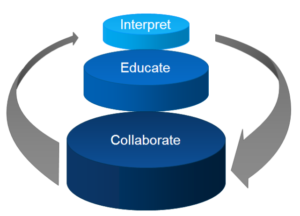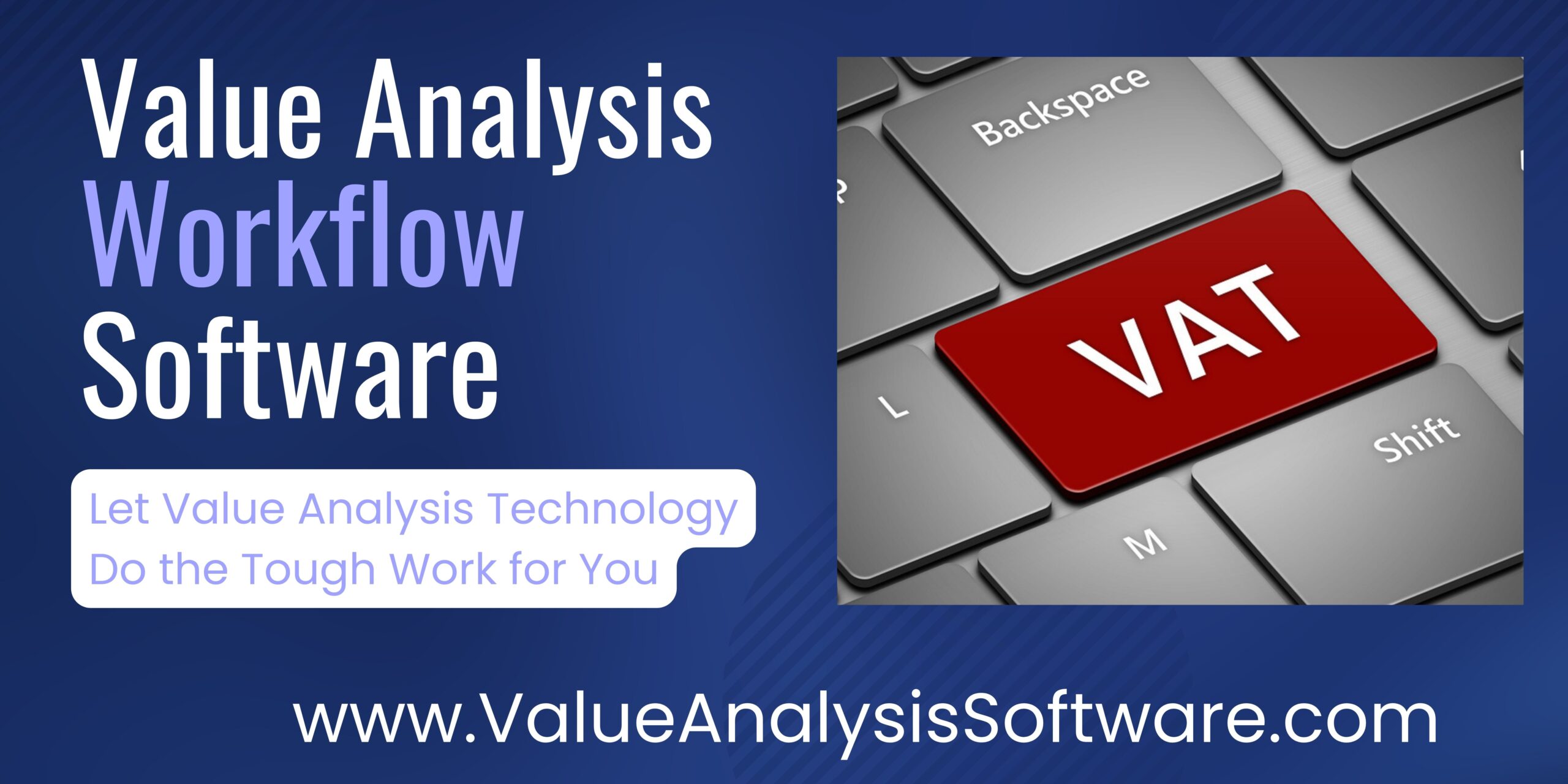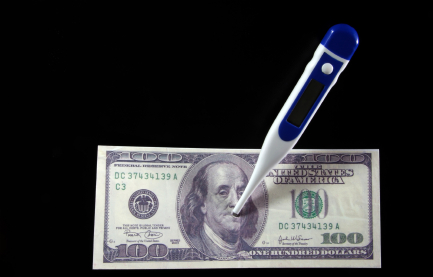James Russell, RN-BC, MBA, CVAHP, Value Analysis Program Director, UW Health, WI
Whenever I tell people what I do for a living, about half just nod and smile (having no idea, or interest in, what Clinical Value Analysis is). The other half will look a bit skeptical and may even ask for an explanation. That’s fun! I usually say my short and sweet version: “I help my health system ensure that the ‘stuff’ we buy is safe for our patients, from a clinician’s perspective, and not just the least expensive thing on the market.” That will satisfy about half of the half. They didn’t really want to know, they were being polite. For the few that are left, they will ask even more pointed questions. Now they’ve opened Pandora’s Box…because I love to talk about what I do. They asked for it!
In-between asking about why healthcare is so confusing and how come their hospital charges $5.00 for a Tylenol, there will be questions about how one becomes a Value Analysis professional. This can become muddy. I’ll tell them how I did it, but that is by no means the only path:
I’m a Registered Nurse. I spent about a decade in Critical Care and another in Psychiatry (which one do you think I use more, when dealing with surgeons?). I’ve been a leader (manager or director) in both disciplines. I have gotten advanced degrees beyond nursing that focus on the “business” of healthcare. I’ve been trained in various project management techniques (such as LEAN).
This background gives me a bit of clinical knowledge and experience (I’ve participated in literally hundreds of Code Blue’s) and also enables me to speak somewhat coherently about operational processes (having to create, balance, and defend my nursing department’s budget, variances, and capital needs). These two disciplines, clinical and operational, have provided me an excellent precursor toward understanding the duality of healthcare value analysis. We want to keep our costs down and our quality up…we don’t want to sacrifice one area to boost another. I use a grid (published in a previous issue) that requires every project to find a home on both a quality and a cost scale. Every potential project involves some kind of change. That change will cause our clinical and financial metrics to either decrease, increase, or stay the same. Creating horizontal and vertical axes with these options, there are only 9 possible outcomes (or predictions) for every project. I’ve found that having intimate knowledge of both clinical and financial intricacies has been extraordinarily helpful.
 When talking to a nurse manager about her budget for next year, I know what it’s like to have to balance FTE needs like overtime rates and contract (agency) labor, but I can also help provide some insight into supply/implant costs and forecasting for capital equipment replacement. Additionally, I can talk the clinical talk, where we remind each other that everything we do should be based upon what provides the best outcomes for our patients.
When talking to a nurse manager about her budget for next year, I know what it’s like to have to balance FTE needs like overtime rates and contract (agency) labor, but I can also help provide some insight into supply/implant costs and forecasting for capital equipment replacement. Additionally, I can talk the clinical talk, where we remind each other that everything we do should be based upon what provides the best outcomes for our patients.
Again, my path is certainly not the only path. One question I often encounter is, “Do Value Analysis professionals have to have a clinical background?” My answer, which sounds like a lawyer’s response, is usually, “It depends.” I know some VA professionals that do not have clinical backgrounds, not many, but some. The role is much harder for them. Does that mean they can’t do it? No. But they will have a lot to learn and will have to put in extra time to acquire new skills (like translating medical terminology into English). I can’t imagine going toe-to-toe with a cardiac surgeon over their ventricular assist device (VAD) pricing and utilization without having intimate knowledge of what a VAD does. But that’s just me. Having a clinical background gives me some automatic credibility with other clinicians. I once had an ER chief demand a certain defibrillator, when all of our analysis and evaluation pointed us toward a different brand. Eventually, I was able to pull him aside and say, quite pointedly, “Look, you don’t even use defibrillators…nurses do. You didn’t even know they don’t come with paddles anymore. You really have no say in this.” Because I have used a defibrillator many, many times over the years, I was able to get past his resistance of, “But, this is the way we’ve always done it,” and bring him around to reality. I can’t imagine doing that if I’d never touched a patient before.
As I said, there are VA professionals without clinical backgrounds, but they are a rare breed. I give them all the credit in the world, as their path toward gaining credibility is much, much steeper.
One thing that’s absolutely critical, whether a clinician or not, is the willingness to learn new things. It took me many years to understand (a little) the intricacies of the Procurement process, the complexity of Materials Management, and the vendor jujitsu (negotiating) of Strategic Sourcing. These folks are immensely helpful in keeping me from making mistakes. They know their stuff and having them “train” me over the years has been really beneficial. But I’m pretty clear that their expertise is different from clinical value analysis. We work together, often seamlessly, but we do not do the same things. One of the best experiences of my VA training was to attend a six-month certificate course in LEAN. I did this with folks from my supply chain group (Materials Management, Contracting, Sterile Processing, OR Implants, etc.). It was a great experience and really helped us function better as a team. I’d encourage any team to do it. Learning their pain-points was invaluable.
Along with learning new things is humility. I try very hard not to act like I’m an expert in everything clinical. I’m not. Even if I was the best bedside nurse on the planet (I wasn’t…really not even close), it wouldn’t make me an expert in everything clinical. For instance, I’ve never worked in the Cath Lab, or Interventional Radiology, or Labor and Delivery. I sometimes end up looking up the terminology they use, just like a non-clinician would! I try very hard to ask lots of questions and listen more than I talk. It may not sound like it (since I’m the only one “talking” here), but I’m really an introvert. I prefer listening to preaching. Really.
Lastly, I think the best value analysis professionals master the art of relationship-building. This is where the good ones shine. If you can treat people with respect, maintain their dignity, and prevent them from getting defensive, all while you’re calling their baby ugly (pointing out their variation in practice), you got this! I try very hard (and am sometimes successful) to remember that I want long-term relationships with my customers. I want them to work with me again and again. Getting a quick win, at the expense of the relationship, is rarely the smart path for me.
James Russell, RN-BC, MBA, CVAHP, is the Value Analysis Program Director at UW Health (the University of Wisconsin). Jim has 3 decades of nursing experience; a third in critical care, another third in psychiatry, and the last 10 years in healthcare value analysis. He’s been in both staff and leadership positions in the for-profit, community healthcare sector, as well as in several Academic Medical Centers. Jim has published dozens of articles on value analysis and nursing leadership, and speaks regularly at national conferences. You can contact Russell with your questions or comments at jrussell@uwhealth.org





